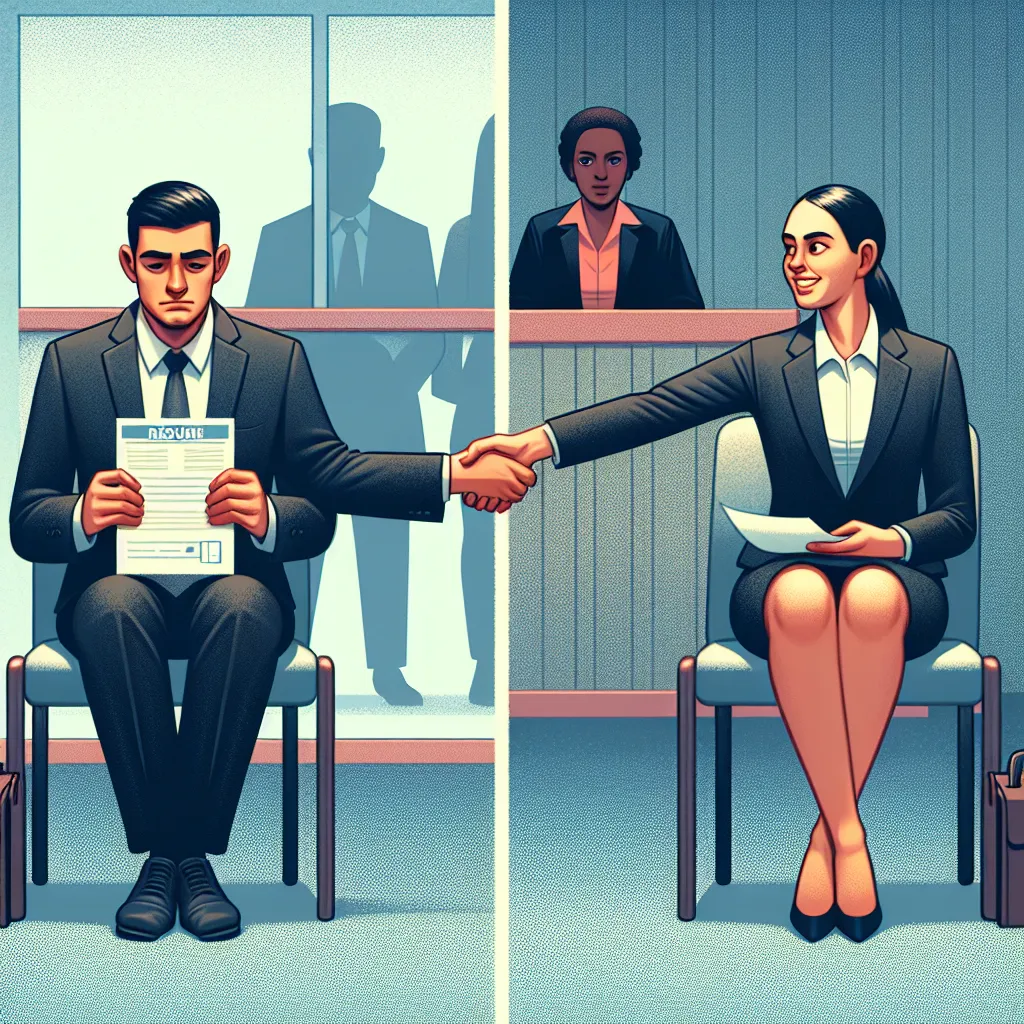Work history questions are a crucial part of any job interview. They allow employers to gauge your experience, skills, and potential fit for the role. Knowing how to effectively answer these questions can significantly boost your chances of landing the job. This guide will provide you with valuable insights and strategies to help you navigate work history questions with confidence and clarity.
Understanding the Importance of Work History Questions
Work history questions serve multiple purposes for interviewers. They help assess your:
- Relevant experience
- Career progression
- Skill development
- Job stability
- Alignment with the company’s needs
By understanding these aspects, you can tailor your responses to showcase your strengths and suitability for the position.
 Interview Preparation
Interview Preparation
Common Work History Questions and How to Answer Them
1. Can you walk me through your resume?
This question allows you to provide an overview of your career journey. Focus on highlighting key achievements and experiences relevant to the position you’re applying for.
Example answer: “I started my career as a junior marketing associate at XYZ Company, where I developed foundational skills in digital marketing and content creation. After two years, I progressed to a senior marketing role at ABC Corp, where I led successful campaigns that increased customer engagement by 30%. Most recently, as a marketing manager at DEF Inc., I’ve been overseeing a team of five and have implemented strategies that boosted our ROI by 25% year-over-year.”
2. Why did you leave your last job?
Be honest but positive when answering this question. Focus on growth opportunities and career advancement rather than negative aspects of your previous employment.
Example answer: “While I valued my time at my previous company and learned a great deal, I felt ready for new challenges and growth opportunities that align more closely with my long-term career goals. This position at your company offers exactly the kind of challenges and growth potential I’m looking for at this stage in my career.”
3. What were your main responsibilities in your previous role?
Highlight responsibilities that are most relevant to the job you’re applying for. Use specific examples to demonstrate your competence.
Example answer: “As a project manager at GHI Tech, my main responsibilities included overseeing cross-functional teams, managing project timelines and budgets, and reporting to stakeholders. For instance, I successfully led a team of 12 in developing and launching a new software product, completing the project 10% under budget and two weeks ahead of schedule.”
4. What is your biggest professional achievement?
Choose an achievement that showcases skills valuable to the position you’re applying for. Use the STAR method (Situation, Task, Action, Result) to structure your response.
Example answer: “My biggest professional achievement was turning around a failing marketing campaign at JKL Enterprises. The campaign was underperforming, with engagement rates 50% below target. I was tasked with revitalizing the campaign within a tight two-week deadline. I conducted rapid market research, redesigned our messaging, and implemented a multi-channel approach. As a result, we saw a 200% increase in engagement and a 30% boost in conversions, exceeding our original targets.”
5. How has your career progression prepared you for this role?
Connect your past experiences to the requirements of the new position. Show how each role has built upon the last to make you an ideal candidate.
Example answer: “My career progression has been strategically focused on developing a comprehensive skill set in digital marketing. I started in social media management, which gave me a strong foundation in audience engagement and content creation. Moving into SEO and SEM roles expanded my technical expertise. My current position as a Digital Marketing Manager has honed my leadership and strategic planning skills. This journey has prepared me to take on the challenges of the Senior Digital Strategist role at your company, where I can leverage my diverse experience to drive innovative marketing solutions.”
Strategies for Handling Difficult Work History Questions
Addressing Employment Gaps
If you have gaps in your employment history, be honest and focus on any positive experiences or skills gained during that time.
Example answer: “After leaving Company X, I took a year off to care for a family member. During this time, I also completed online courses in digital marketing to keep my skills current. This experience not only strengthened my personal resilience but also gave me a fresh perspective on work-life balance and time management.”
Explaining Short-Term Positions
If you’ve had several short-term positions, focus on the diverse skills and experiences you’ve gained.
Example answer: “While I’ve had several positions over a short period, each role provided unique learning opportunities. At Company A, I gained expertise in project management software. At Company B, I developed strong team leadership skills. These varied experiences have made me a versatile professional, capable of adapting quickly to new environments and challenges.”
Discussing Career Changes
If you’re changing careers, emphasize transferable skills and your passion for the new field.
Example answer: “Although my background is in finance, I’ve always been passionate about technology. I’ve been actively developing my programming skills through online courses and personal projects. My analytical background from finance combined with my newly acquired technical skills make me well-suited for this software developer role.”
 Interview Success
Interview Success
Common Mistakes to Avoid When Discussing Your Work History
-
Negative talk about former employers: Always maintain a professional and positive tone, even if you had negative experiences.
-
Providing too much detail: Keep your answers concise and relevant to the job you’re applying for.
-
Inconsistency with your resume: Ensure your verbal answers align with the information on your resume.
-
Focusing solely on job duties: Highlight accomplishments and results, not just your responsibilities.
-
Lying or exaggerating: Always be honest about your experiences and skills.
Follow-up Questions and How to Answer Them
-
Q: How did you handle a difficult situation at work?
A: “In my previous role, we faced a significant project delay due to a supplier issue. I immediately organized a team meeting to brainstorm alternatives, contacted backup suppliers, and reworked our timeline. Through effective communication and quick decision-making, we completed the project with only a minor delay and within budget.” -
Q: Can you describe a time when you disagreed with a supervisor?
A: “I once disagreed with my supervisor about the approach to a marketing campaign. I respectfully presented data supporting my alternative strategy. We had a constructive discussion, and ultimately, we implemented a hybrid approach that incorporated elements from both our ideas. The campaign was a success, and this experience taught me the value of open communication and collaboration.” -
Q: How do you stay updated with industry trends?
A: “I regularly attend industry conferences, subscribe to relevant publications like [Industry Magazine], and participate in online forums. I also set aside time each week to read industry blogs and research reports to ensure I’m always aware of the latest trends and best practices.” -
Q: What’s the most challenging project you’ve worked on?
A: “The most challenging project was implementing a new CRM system across our entire organization. It involved coordinating with multiple departments, managing resistance to change, and ensuring minimal disruption to daily operations. Despite the challenges, we successfully rolled out the system, which improved our customer service efficiency by 40%.” -
Q: How do you handle working under pressure?
A: “I thrive under pressure by maintaining a structured approach. I prioritize tasks, break large projects into manageable steps, and ensure I take short breaks to maintain focus. For instance, during a high-stakes product launch, I created a detailed timeline, delegated tasks effectively, and conducted daily check-ins with my team. This approach helped us meet our deadline successfully while maintaining high-quality standards.”
Conclusion
Effectively answering questions about your work history is crucial for interview success. By preparing thoughtful, concise, and relevant responses, you can showcase your experience and skills in the best light. Remember to stay positive, focus on achievements, and relate your past experiences to the job you’re applying for. With practice and preparation, you can confidently navigate work history questions and increase your chances of landing your desired position.
For more interview tips, check out our guides on how to answer competency-based interview questions and how to explain gaps in your resume. Good luck with your interview preparation!




